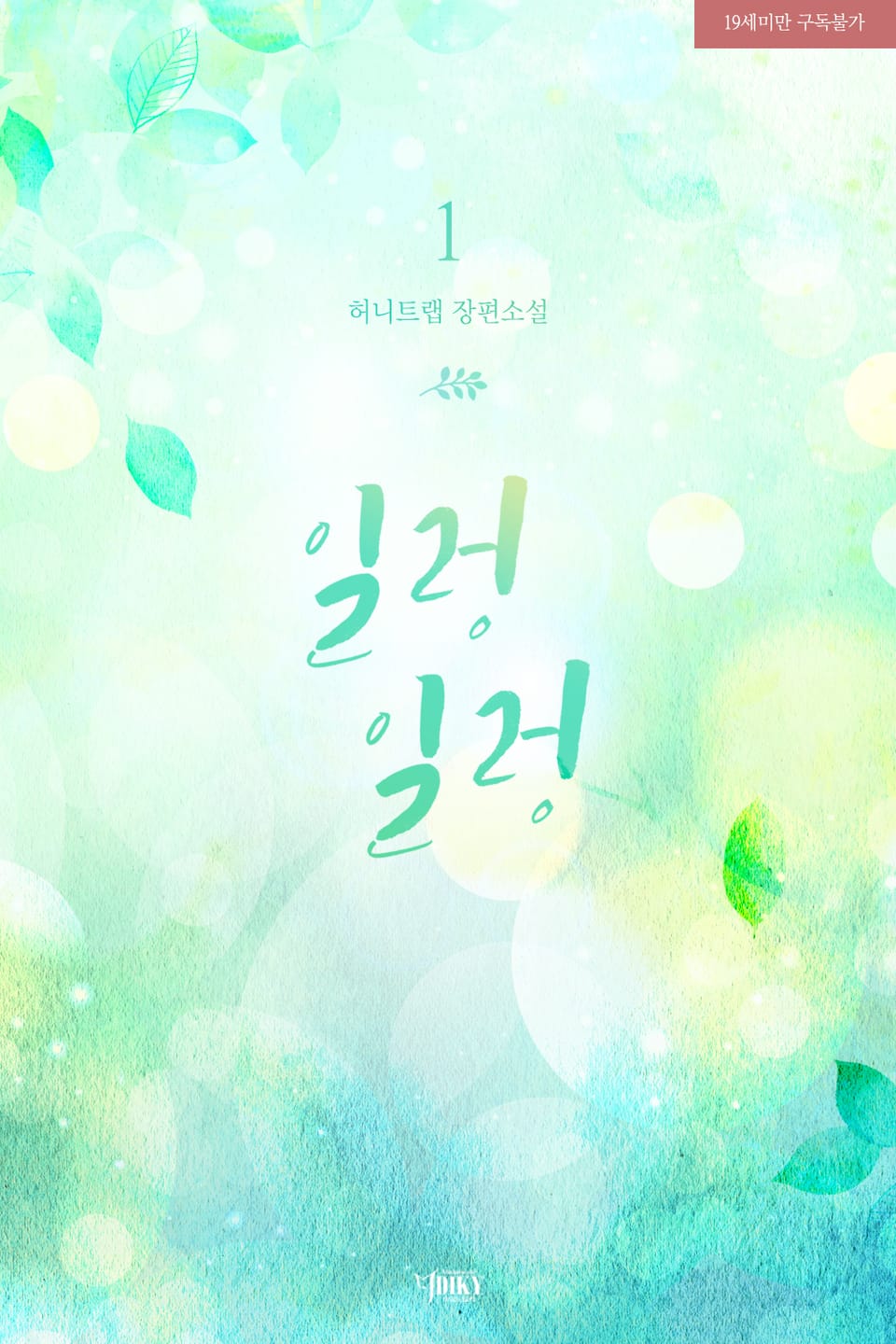Along with the delicious aroma of chicken soup and braised crucian carp, the sound of an electric tricycle’s motor was heard at the door—Wen Di’s parents had returned.
Wen Di walked from the yard into the dining area and saw his father striding in, holding a rack of ribs in his left hand and a leg of lamb in his right, looking hurried and busy. His mother was unloading groceries from the tricycle, plastic bags filled with fried dough twists, and sesame crisps. It turned out they had been out shopping for New Year supplies.
Wen Di’s father, a reserved middle-aged man, simply nodded when he saw his son had come back and paused to ask, “When did you get here? Was your luggage heavy?”
“Not heavy.”
His mother was a different story. As soon as she caught sight of Wen Di out of the corner of her eye, she immediately put down the dough twists and rushed over, patting him all over his body. Then, like all mothers everywhere, she loudly lamented, “You’ve lost weight, you’ve lost weight.”
Wen Di had no choice but to once again explain, starting with the cafeteria prices. During this, his father stowed the New Year supplies in the small storage room behind the kitchen and brought out the dishes. The crucian carp was cooked so dark it was almost black, and it was obvious that too much dark soy sauce was added. He frowned and said, “I told your grandma to wait for me to cook.”
After completing nine years of compulsory education, Wen Di’s father went to cooking school and got a second-level chef’s license. He originally worked in the kitchen of a hotel in the county town, but later the business was bad and the hotel closed down, so he was laid off. The family did not have the capital to open a restaurant, and after much calculation, they only had enough money to buy a mobile cart and do some small business, so they opened a breakfast stall. After making fried dough sticks and sesame cakes for more than ten years, he had no place to display the cooking skills he learned back then, and he could only show off his skills during the Chinese New Year.
As the dishes were served, rice was ready, and Wen Di’s uncle’s family returned as well. Both the uncle and aunt worked in Nanjing, bringing their child along to study in a school there—a common family arrangement in the village. His cousin was in his final year of high school. As soon as he saw Wen Di, the uncle immediately pulled his own son over, offering earnest advice, telling him to learn from his older cousin.
“Xiao Di, talk to him properly about study techniques. He’s not good at math and his writing is terrible. He ranked over a hundredth place in his year in the finals,” the uncle said while scolding his son. “He just plays games on his phone all day during the holidays, how does that prepare him for the college entrance exam!”
Wen Di’s aunt immediately defended her son, saying, “It’s the New Year; why scold him? They work hard at studying, too.”
“If he doesn’t work hard now, then it will be hard in the future when he works in a workshop or makes pancakes!” Wen Di’s uncle pointed at his son, saying, “Thinking about making big money all day, yet he can’t even pass the college entrance exams. What are you daydreaming about!”
The college entrance examination candidate had a bitter face and said indignantly: “My brother got into T University, but now he doesn’t make much money either.”
Wen Di felt he was unjustly dealt a blow, feeling quite wronged.
Wen Di’s uncle, dissatisfied with his son’s ‘backward’ approach to education, said: “Being poor now doesn’t mean being poor in the future. A good university gives you a different starting point. Your connections, your perspective, they’ll all be better than others. Don’t always think about being a game livestreamer. That thing has no long-term development. Do you hear me?”
Wen Di scratched his head. He had heard this argument countless times since middle school. He had also thought about going to T University to broaden his horizons and latch onto some big-shot’s coattails. But after several years, he hadn’t found a big-shot to latch onto, and his confidence had crumbled like a post-war ruin.
There were indeed big-shots, but why would they support him? Big-shots stick together with other big-shots, and he was just an ordinary classmate.
Besides, just because You Jun succeeded in the finance world, did that mean he could catch a ride on that wave and become an investment banking elite? First, he’d need relevant internship experience and skills, right? He was miles away from the investment banking world, without any ladder to climb.
His uncle continued his stern lecture, ordering his son to humbly seek guidance from Wen Di, even mentioning Wen Di’s diligence in studying late into the night back then. Wen Di just hoped they would quickly change the subject and stop dwelling on his old student days.
Then the aunt chimed in, “Does Xiao Di have a girlfriend yet?”
As soon as these words came out, six pairs of eyes from grandparents, parents, uncles and aunts flashed at him like searchlights. Wen Di’s hand holding his chopsticks began to tremble—change the topic quickly!
“You’re already 26; it’s time to date someone,” his aunt said. “The guy next door, Shi You, is already a father; his little girl is fair and chubby.”
Wen Di swallowed half a bite of his meal, which got stuck in his throat. “Haven’t found the right one,” he replied.
This perfunctory excuse clearly didn’t convince his grandmother. “You’re not a kid anymore; don’t set your sights too high.”
“We are all getting married late now,” Wen Di hinted, “and there are even people who don’t get married at all.”
His grandmother slapped her thigh. “How can that be! Not having children is unacceptable!”
Grandpa had been quietly eating, but seeing his grandson looking embarrassed, he thought there might be some difficulty. He comforted him specially, saying, “Our family’s circumstances aren’t great, so the girls aren’t interested? It’s alright. If you find someone you like, your dad can sell the shop, and I’ll bring out my savings. We’ll pull together a dowry no matter what.”
Wen Di mumbled ‘hm hm en en’ dodging the topic with his studies. “I haven’t even graduated yet, and I don’t have a job lined up, so how can I get married ah?”
“You can start dating first,” his aunt suggested. “Your younger cousin got engaged in high school, and his family even built him a house. By the time he graduated, they already had a kid.”
Wen Di searched his memory, trying to recall which relative it was. There were too many aunts and cousins, and after he left, he lost contact with them and his memory gradually became blurred. Every New Year, he had to re-familiarize himself with everyone’s faces.
Perhaps seeing her son’s discomfort, Wen Di’s mother spoke up, “It’s different now than it was when we were young. The children have their own plans, so we don’t need to worry about them anymore.”
Grandpa, however, disagreed. “No matter how times change, isn’t raising children still the same?”
Songtai and Beijing felt like two different worlds. Wen Di scratched his head and decided to stay silent.
After a somewhat stifling dinner, Grandma went to the kitchen to wash dishes, while Grandpa went outside to the pond to fetch water. Because he was reluctant to spend money on water, he always fetched water for washing dishes and vegetables, using tap water only to boil drinking water. His uncle and aunt supervised their son with his homework, and his father kneaded dough in the dining room for tomorrow’s pancakes.
Wen Di sat in the yard, helping his mother pick water spinach under the small bulb above the kitchen door. After glancing around to make sure everyone was occupied, his mother quietly said, “Your grandparents only nag like this for a few days every year, so don’t take it to heart. If you don’t want to date, then don’t. You can’t force something like fate.”
Wen Di blinked and murmured ‘en’. It felt as if an iron had smoothed out the discomfort from dinner.
He was not surprised by his mother’s words. Back when he was in high school, she’d bring him fruit while he was studying and sometimes join in by asking what the auxiliary line in a geometry problem was for. As soon as Wen Di explained it, she understood it, and her reaction speed was no less than that of the students in the provincial key school. But she had dropped out after middle school to work, and in their shop, where all that was needed was to calculate the total price for fried dough sticks and sesame cakes, her intelligence went unused.
In recent years, she had even kept up with online discussions about ‘small-town kids who excel at academics’ and ‘workplace reforms’, silently reading comments in forums. “The elders have never left the county in their lifetime. They don’t know how times have changed, so they can’t keep up with your thinking. Just listen to them.”
“It’s just a bit of nagging, it’s nothing,” Wen Di said, “As long as you’re not pushing me to go on blind dates, I’m already thankful.”
His mother tossed a handful of water spinach into the basket and laughed. “I actually registered you on a dating site.”
Wen Di felt a chill. He had spoken too soon; he had been overly optimistic about the situation. Was the only supporter in his family about to turn against him?
“It’s a fairly new site,” his mother said, her smile fading. “When you fill in your information, it assesses your personal details and assigns you a level. The higher your level, the better matches you can get.”
“That’s harsh,” Wen Di said, “So what level am I?”
“Level five.”
“What’s the highest level?”
“Level ten.”
Wen Di put down the spinach leaves and clutched his chest. He had lost count of how many times he’d been hit with a ‘critical blow’ today. He had never received a failing grade in his life. “Am I really that bad?”
“The level is flexible,” his mother explained. “When I was just filling in your personal info, you were at level eight.”
“Then why…”
“After filling the family background, it dropped to level five.”
Wen Di choked up.
“That’s why I won’t interfere with your life,” she put her hand on her son’s arm. “You’ve seen more, gone further, and can see things more deeply than we do.”
“That depends,” Wen Di replied. “You all have more life experience.”
“Living longer doesn’t necessarily mean having more experience,” his mother said. “Sometimes it just means more fat on your liver and higher blood pressure.”
Wen Di looked down with a smile, separating leaves from stems. After a while, he suddenly asked, “Mom, have you ever seen online where sometimes men are with men, or women are with women?”
“Oh, I have,” his mother replied casually. “I even follow a few livestreamers like that.”
“Do you find them strange?”
“It’s not strange at all ah. They’re just partners living together—what’s strange about that?”
“You’re okay with homosexuality?”
“Everyone has their own way of living; I think it’s all fine,” his mother said. She thought for a moment and added, “As long as it’s not my own child, I have no objections.”
Wen Di smiled, stood up, and grabbed a broom to sweep up the vegetable leaves on the ground. “Are you opening the shop tomorrow?”
“Until nine o’clock,” his mother replied. “Then we’ll close up and rest until the sixth day of the new year.”
“I’ll go and give you a hand.” Wen Di said.
“You barely get to come back; no need to help,” his mother said. “Just get some more sleep during the holiday.”
“It’s not like I haven’t helped before,” Wen Di said. “I can keep track of the accounts and count the cash. I’m just sitting around doing nothing anyway.”
His mother nodded. “Alright ba, we’ll call you when we head out tomorrow.”
Wen Di agreed and went straight to bed. The next morning, while it was still dark outside, his mother nudged him awake. Wen Di rubbed his eyes, yawning, and climbed onto the tricycle. The bumpy dirt road soon shook him fully awake.
Back in elementary school, Wen Di often helped at the stall. He was good-looking and had a sweet way of talking, which endeared him to the aunties and grandmas when he stood there selling scallion pancakes. But once he started middle school, he suddenly felt that hawking on the street was unseemly, so even when his parents asked, he stopped going.
After many years, the breakfast stall had become a small shop. There were no seats; customers could only take their food to go. In front of the shop was a large iron table, on which were stacked steamers and iron plates, with dishes of freshly made sesame pancakes and chive boxes. Inside were an oil fryer, a chopping board, an electric oven, and a whisk.
Wen Di stood behind the iron table with a smile on his face, greeting every guest who stopped by.
“What? Our oil isn’t reused; it’s all fresh soybean oil!”
“This here is brown sugar twisted dough, made with cornmeal. It’s especially chewy.”
“Both sweet and savory tofu pudding are delicious. Do you want some coriander?”
“No, add more green onions and use less sesame oil.”
“Okay!” Wen Di turned to place the order inside but suddenly felt something was off. He turned his head sharply and stared at Bian Cheng who was standing at the door of the store, intently studying the red paper menu on the wall and examining each item’s price. “Why are you here!”
T/N: Title is from The Tempest Act 5, Scene 1. The literal translation for the title ‘自从离开了你,我的骨髓都浸酥了’ is ‘Since I left you, my bone marrow has been soaked and tender’





thank you so much for the update! can’t wait to see what happens next